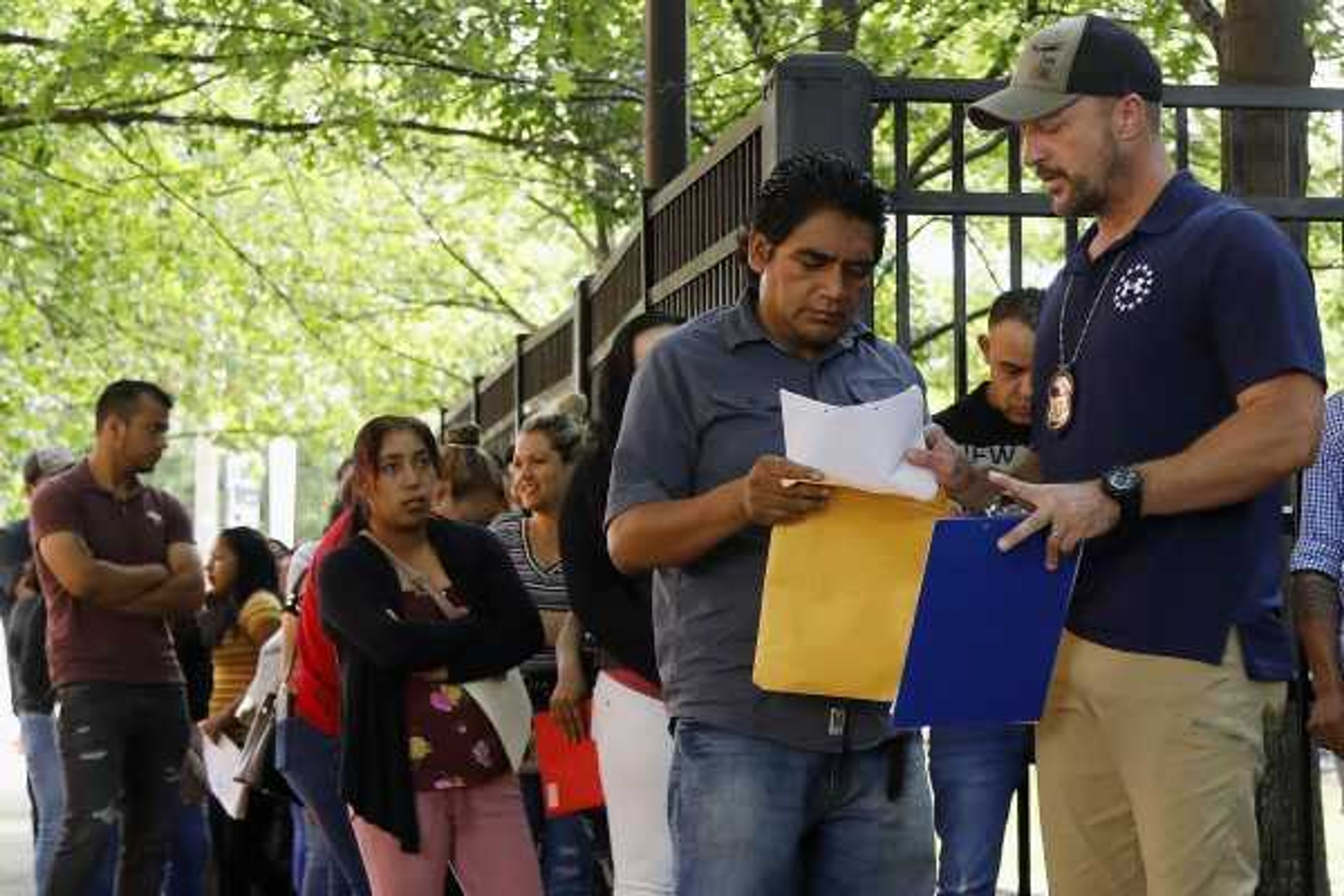LOS ANGELES -- In just 2 1/2 years, the Trump administration has put its stamp on the nation's immigration court system, appointing more than 4 in 10 judges while dramatically expanding the bench and issuing new rules making it it harder for migrants to win their cases and stay in the country.
An Associated Press analysis shows President Donald Trump's administration has appointed at least 190 immigration judges, accounting for 43% of the total.
The hires helped expand the immigration bench by more than 100 since September 2016; by comparison, President Barack Obama had a net gain of fewer than 50 judges from 2010 to 2016.
The AP analysis also found Trump has continued a trend from past administrations in hiring large numbers of former military lawyers and Immigration and Customs Enforcement attorneys as judges. Nearly 1 in 5 sitting judges appointed under Trump was a military lawyer, and half previously worked for ICE.
The administration has ramped up staffing in a bid to reduce enormous delays in the overwhelmed immigration court system, which has nearly 900,000 cases. Immigrants seeking to stay in the country often wait years for a hearing, let alone a decision.
Critics say Trump's selections are no coincidence at a time when the president is trying hard to curtail immigration, especially for the tens of thousands of Central Americans arriving at the border in hopes of winning asylum.
"My thinking is they want to bring in people who they think have the professional experience that will lead them to interpret the law in the way the attorney general wants it to be interpreted, which is, basically, Central American domestic violence and gang claims are not valid asylum claims," said Jeffrey Chase, a former immigration judge.
Immigration judges, who are employed by the Justice Department, not the judicial branch, make critical decisions about who gets asylum and green cards to stay in the United States and who must return to their home countries, shaping the lives of immigrants and their families and the fate of Trump's crackdown.
The judges have been taking a harder line under Trump than in the previous administration, denying 65% of asylum cases during the 2018 fiscal year, compared with 55% two years earlier, according to data from the Transactional Records Access Clearinghouse at Syracuse University.
Last year, then-Attorney General Jeff Sessions issued guidance narrowing the scope of asylum claims, though it was later blocked by a judge. Other new rules set performance targets for judges and bar them from shelving cases.
The number of immigration judges stood at 444 in April, according to records provided by the Executive Office for Immigration Review, which runs the courts. And the hiring is expected to continue. The administration wants to add 100 in the next fiscal year, said Kathryn Mattingly, a spokeswoman for the office.
The latest additions include a Navy-deep sea diver who worked more than a decade as a military attorney, a Los Angeles prosecutor who tried federal drug cases and held posts in Nigeria and Pakistan, and an attorney who worked more than two decades for ICE.
Tapping military lawyers and immigration trial attorneys for these positions isn't a new phenomenon. Of those appointed during the Obama administration who remain on the bench, about 13 percent have military law experience and more than half worked for ICE, the AP's analysis shows.
Mattingly said the system's judges are hired through an open, merit-based process, and she rejected "insinuations that its judges lack integrity or competence based on the clients they may have represented prior to becoming judges."
Connect with the Southeast Missourian Newsroom:
For corrections to this story or other insights for the editor, click here. To submit a letter to the editor, click here. To learn about the Southeast Missourian’s AI Policy, click here.







